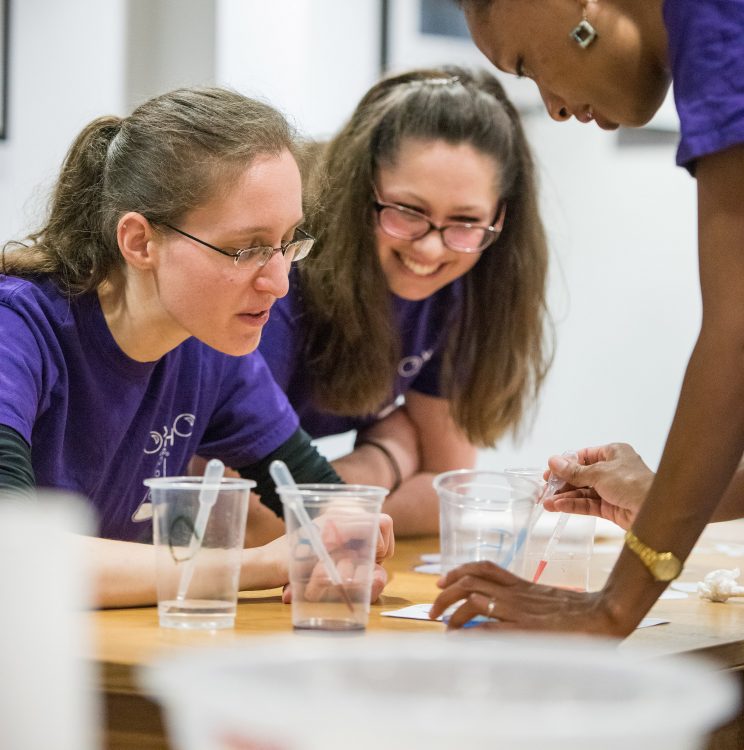Chemistry
visiting students

Studying Chemistry at St Edmund Hall as a Visiting Student means world-class tuition in one of the largest and most exciting Chemistry departments in the world. A list of Chemistry courses which are offered at undergraduate level and are available to Visiting Students is given below.
Many Visiting Students in Chemistry take a combination of Core Courses and stay in Oxford for the entire academic year. This enables full integration with the Chemistry course and with our own undergraduate Chemists.
Availability of courses may vary according to term of study. The exact content of your courses will be decided in consultation with your tutor at St Edmund Hall and may depend on what teaching resources are available at the time. Further Courses are only available to Visiting Students with the appropriate academic background (Core Courses are prerequisites).
We offer the following topics in Inorganic Chemistry. We strongly recommend one or two basic tutorials for orientation to the level of Oxford Inorganic Chemistry, namely “Atomic Structure and the Periodic Table” and “Introduction to Molecular Orbital Theory, Symmetry and Shapes”, even if you have previously covered some of these aspects.
- Introduction to atomic structure and the Periodic Table (essential).
- Introduction to molecular orbital theory, symmetry and shapes (essential).
- Structures of solids
- Introduction to transition metal chemistry (essential)
- Diffraction
- Electronic properties of solids
- General trends in transition metal and coordination chemistry; and molecular orbital theory in transition metal chemistry
- Transition metal organometallic chemistry and organometallic reaction mechanisms
- Chemistry of the lanthanides and actinides.
The following topics are offered in Organic Chemistry and can be offered as either a single tutorial topic or, in some cases (dependent on topic), tailored to the individual to provide more in depth study as part of either a secondary (minor) or primary (major) course.
- 1st year topics: Structure and stereochemistry; acidity & basicity; nucleophilic substitution at saturated carbons; elimination reactions; alkenes & alkyne chemistry; carbonyl chemistry; aromatic chemistry; introduction to biological chemistry.
- 2nd year topics: Aromatic & heterocyclic chemistry; Conformational analysis and ring chemistry; Stereoelectronic effects; Organic spectroscopy; Physical organic chemistry; Rearrangements; Reactive intermediates (radicals, carbenes, nitrenes & arynes); Heteroatom chemistry; Organic synthesis.
- 3rd year topics: Pericyclic reactions; Contemporary methods in catalysis (organometallic and organocatalysis); Radical chemistry; Advanced spectroscopic analysis; Stereoselectivity in synthesis; Total synthesis.
- Concepts: quantum mechanics, statistical mechanics, thermodynamics, and kinetics.
- Phases: solids and surfaces, liquids and solutions, perfect and imperfect gases.
- Applications: electrochemistry, valence, atomic spectroscopy, molecular spectroscopy, NMR, photochemistry, reaction dynamics.
Visiting Students
More information about becoming a Visiting Student at St Edmund Hall – including finance, accommodation and how to apply
Other Subjects
- Biochemistry
- Biomedical Sciences
- Chemistry
- Comparative Literature
- Computer Science
- Earth Sciences (Geology)
- Economics
- Engineering
- English Language and Literature
- Film Studies
- Finance
- French Language and Literature
- German
- History
- History of Art
- Law
- Management
- Materials Science
- Mathematics
- Philosophy
- Physics
- Politics and International Relations
- Psychology
- Russian